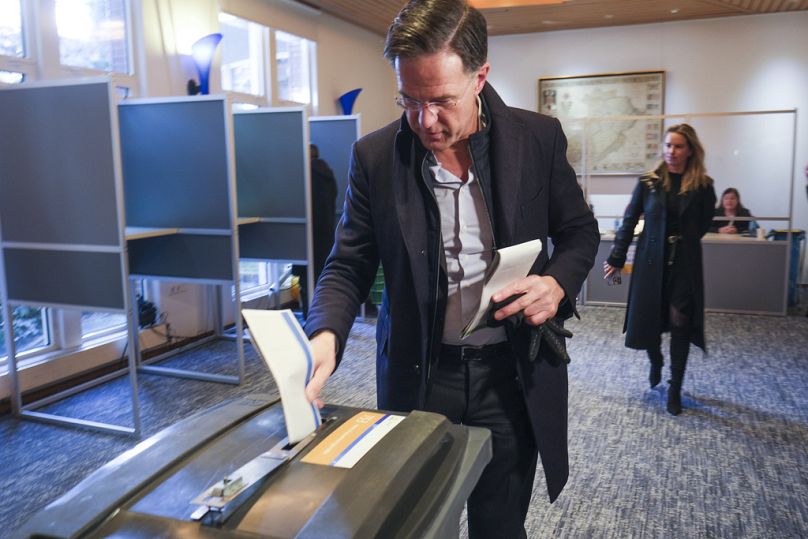The election for the Netherlands' 12 provincial legislatures revealed a shocking victory for the farmer's protest party, BBB. The win for the Farmers-Citizen movement is seen as a powerful protest vote against the ruling four-party centre-right coalition led by PM Mark Rutte.
A new powerhouse of Dutch right-wing populism took political center stage on Thursday after winning its first provincial elections, a victory that was seen as a resounding rebuke to Prime Minister Mark Rutte's ruling four-party coalition.
 ADVERTISEMENT
ADVERTISEMENT
 ADVERTISEMENT
ADVERTISEMENT
With counting of ballots from Wednesday's vote wrapping up, the Farmer Citizen Movement — known by its Dutch acronym BBB — was predicted to win 15 seats in the 75-seat upper house of the Dutch national parliament, level with the bloc formed by left-of center Labor and Green parties.
The provincial lawmakers elected in Wednesday's vote choose national senators at the end of May.
Maiden victory for the protest party
“Now is the time to take citizens seriously. I am open to talks with everybody. We are ready," said BBB leader, Caroline Van der Plas.
Her party was formed in 2019 and took part in provincial elections for the first time this year. It won 1% of the vote in the national election in 2021.
Dutch voters say enough with the status-quo
Meanwhile, voters have moved away from the ruling four-party centre-right coalition of long-serving Prime Minister Mark Rutte. The group lost eight seats in the Senate, which could considerably impact his ability to push reforms through the upper house of the national parliament in the remainder of his term.
The vote comes amid widespread dissatisfaction with Rutte's government and anger among farmers at plans to rein in nitrate pollution.
Rutte, who came to power in 2010 and is now the Netherlands’ longest-serving leader, is under pressure after a parliamentary inquiry into earthquakes caused by natural gas extraction in the northern province of Groningen was critical of him and his government.
Rutte’s administration hasn't yet formally responded to the findings, but he acknowledged that the conclusions were “hard and painful.”
The anti-immigration Freedom Party led by Geert Wilders performed poorly in the last provincial elections in 2019, but polls suggest it will bounce back this time. Wilders supports farmers and is calling for more investment in affordable housing and a drastic reduction in immigration.











